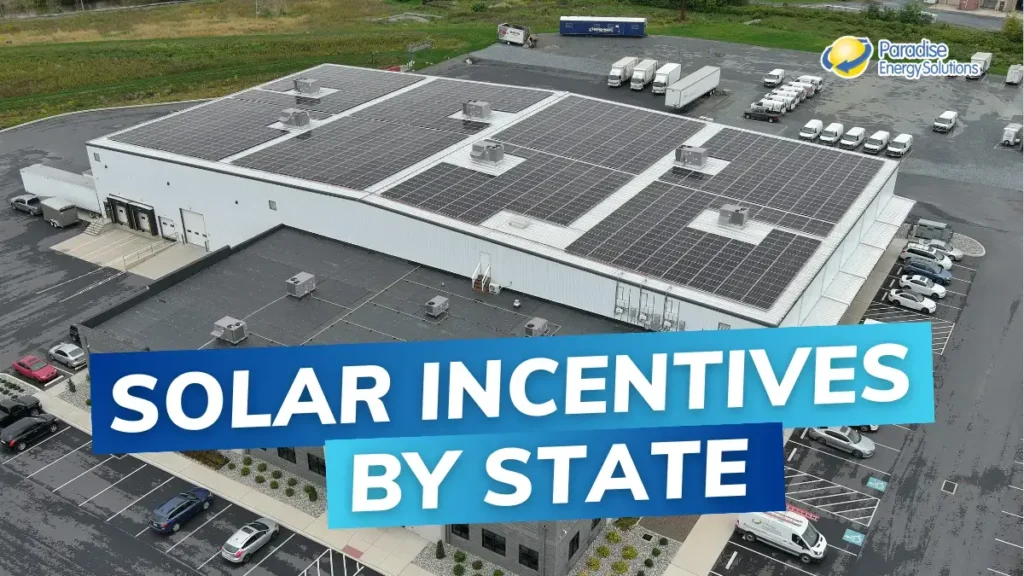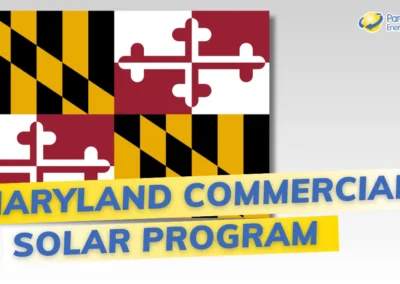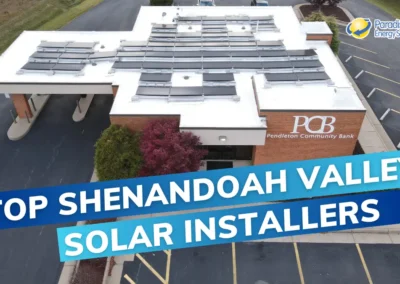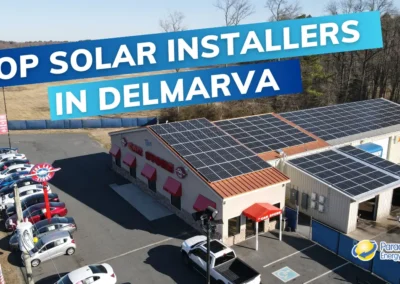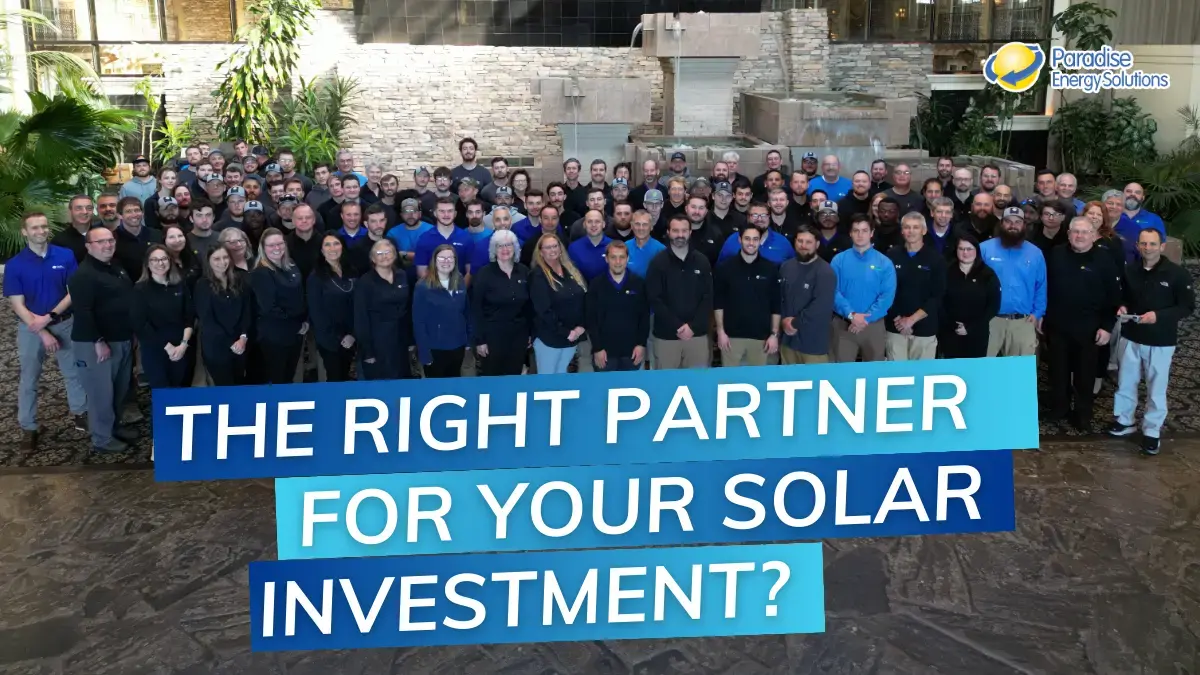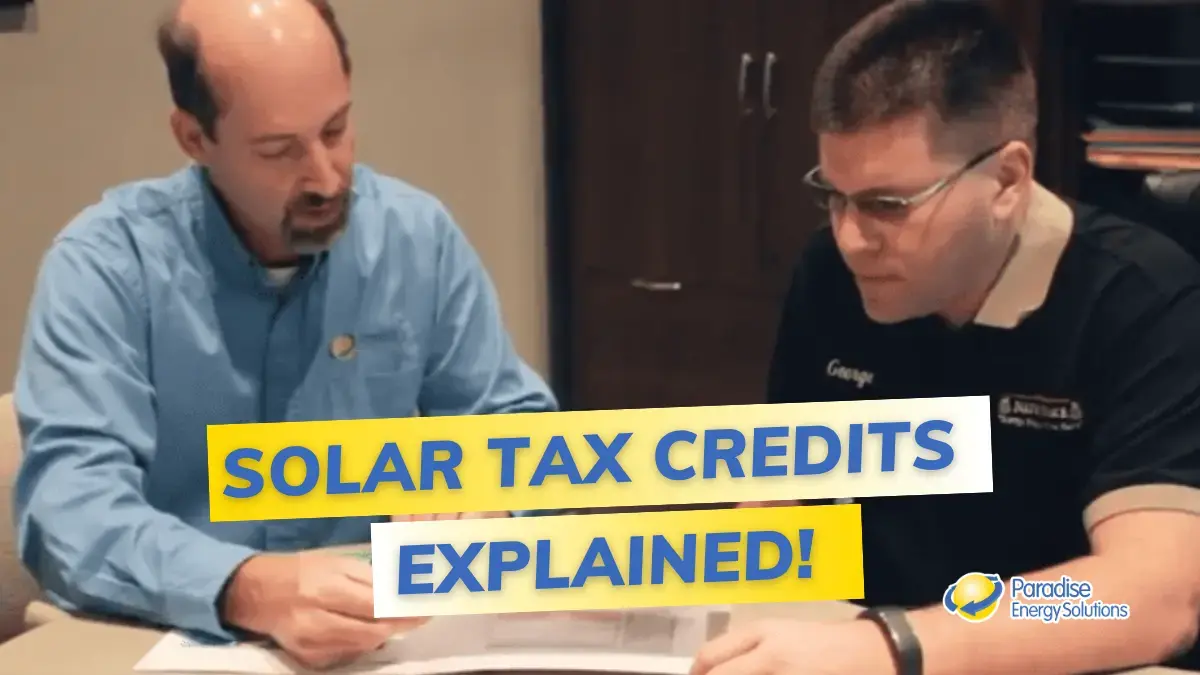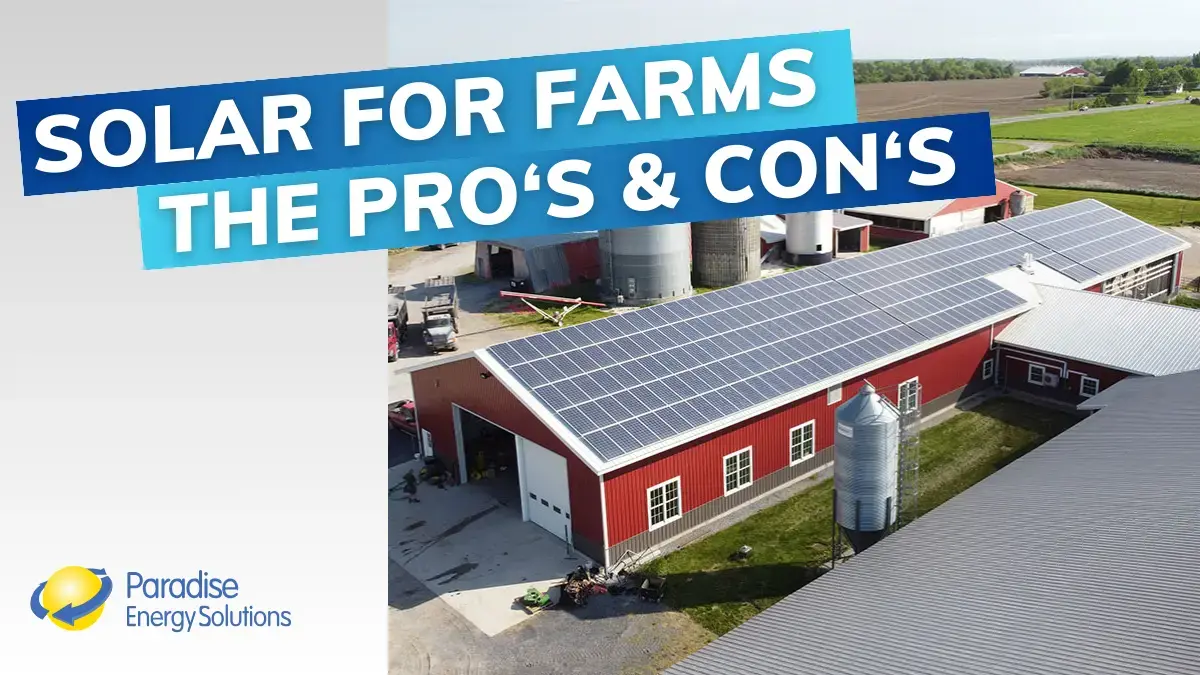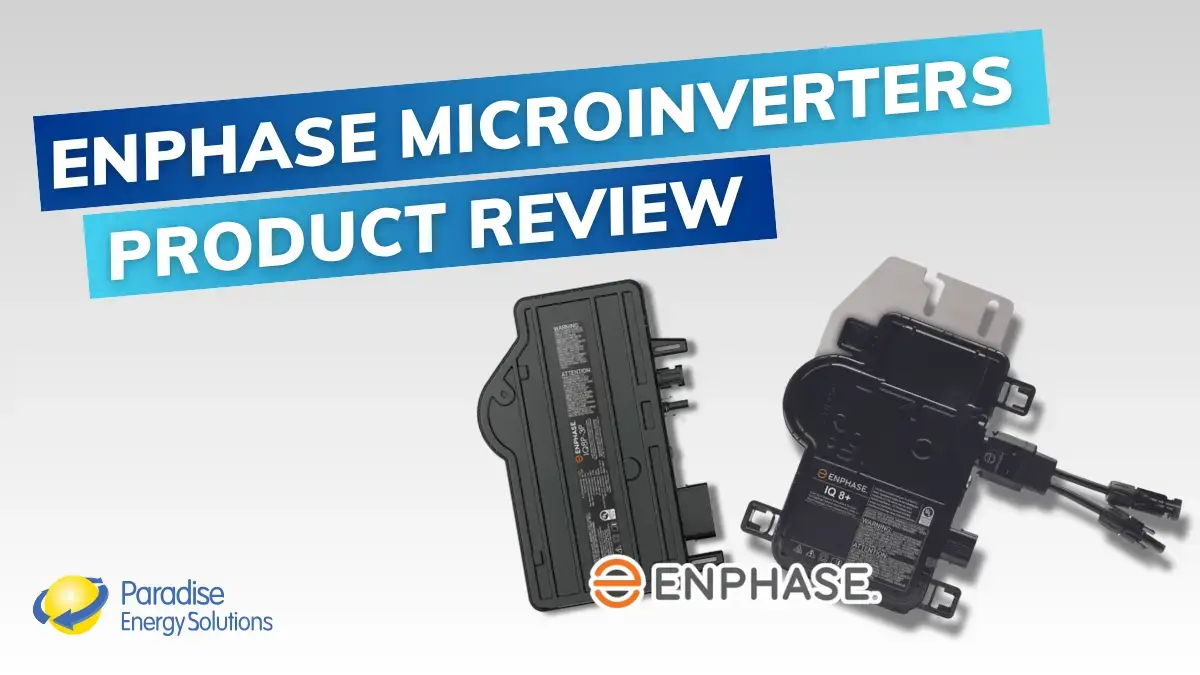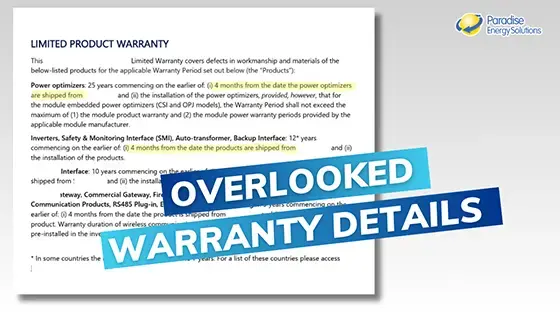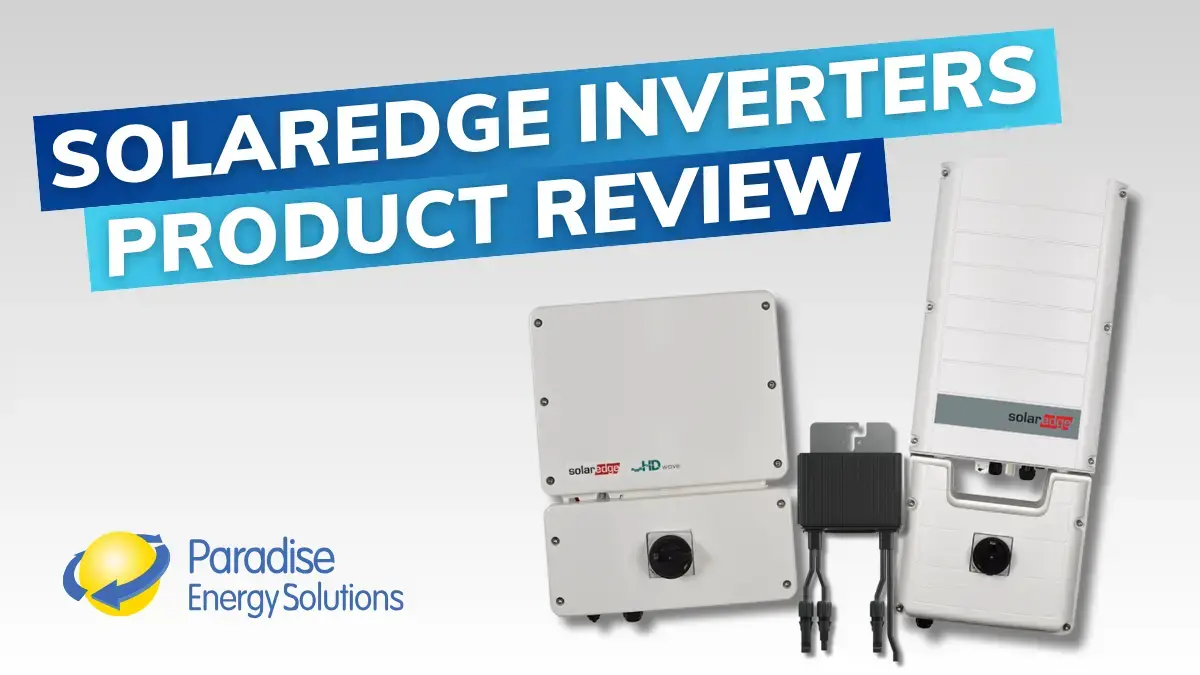A solar panel system will produce free electricity for your home, business, or farm for decades. In just a few years, your solar system can pay for itself. From then on, it’s decades of free electricity.
Going solar is a long-term investment that requires money upfront to cover the installation cost. The good news is that there’s help available. Federal and state governments have made it easier to install solar through a series of incentives. Whether they’re tax credits, grants, or something else entirely, they’ll put money back in your pocket as early as the first year you install your system.
While federal incentives stay the same across the board, solar incentives on a state level vary quite a bit. Jump ahead to see which solar panel incentives are available in your state:
- Across All States
- In Many States
- Delaware
- New Jersey
- Maryland
- New York
- Ohio
- Pennsylvania
- Virginia
- West Virginia
Solar Panel Incentives Available Nationwide
Federal Solar Investment Tax Credit
One of the best solar incentives is offered on a national level by the federal government: the solar investment tax credit. This incentive allows you to get 30% off the installation cost back in tax savings and it’s available to everyone, as long as they opt for solar ownership as opposed to a lease or PPA. You’ll receive 30% of the total cost of the system back through a reduction in your owed taxes.
There are also additional 10% adders available for qualifying systems. Those adders include:
- Energy Communities (+10% tax credit)
- Domestic Content (+10% tax credit)
- Low-Income Areas (+10 – 20% tax credit)
Accelerated Depreciation
Another great incentive available to any businesses or farms installing a commercial system is accelerated depreciation. This allows you to accelerate 60% federal depreciation tax savings to the year your system is installed, further front-loading your solar investment and knocking down installation costs. The remaining 40% follows the 5-year MACRS schedule.
USDA REAP Grant
A grant available to many farms and rural businesses is the Rural Energy for America Program (REAP) Grant from the USDA. This grant can significantly reduce the cost of your solar system by up to 50%. However, unlike the solar investment tax credit and accelerated depreciation, this grant isn’t available to every taxpayer. In fact, only a set amount of money is awarded each year, making it an extremely competitive program.
To be eligible for the grant, you must be a farm or rural business located in a qualifying area, and you can’t owe any back taxes. To determine if your business is in a qualifying area, you can use the USDA’s Eligibility Map.
While USDA Grants are extremely competitive, Paradise Energy employs experienced grant writers with an impressive track record of successfully securing grants. Our team has helped over 300 farmers and other business owners secure over $19 million in USDA funds.
Solar Panel Incentives Available In Most States
There are two common solar incentives that many states offer to some degree. These are net metering and Solar Renewable Energy Credits, or SRECs.
Net Metering
There are 38 states that have mandatory net metering standards, plus Washington DC and Puerto Rico. Net metering is the utility’s way of compensating you for extra electricity your grid-tied solar system generates, and it makes generating 100% of your electricity from solar much easier and more affordable.
Your system will produce more electricity during the daytime than you use during the daytime. That extra electricity will be transferred to the power company’s electricity grid. They’ll keep track of how many kilowatt-hours (kWh) your system transferred over, and you’ll get credit for each one. Then, during the night time or on cloudy days, you can draw electricity using the credits you’ve built up. The utility grid essentially provides free energy storage.
States with net metering offer solar generators the retail rate for the electricity they generate. States without it will offer you the wholesale rate or another compensation method entirely. If your state requires retail rate compensation, you’ll be compensated the same amount of money as the utility would sell it for. That means if you transfer 50 kWh of electricity to the utility, you’ll have 50 free kWhs to pull from the utility. So with the retail rate, it’s an even exchange.
If you’re compensated with the wholesale rate, you’ll be compensated with how much it costs the utility to generate the electricity, which is less than the retail rate.
Solar Renewable Energy Credits (SRECs)
Some states have set renewable energy portfolio standards for their utility companies. These standards require the utility to produce a certain percentage of electricity by renewable means.
In order to meet their standards, utilities can purchase Solar Renewable Energy Credits (SRECs) from homes, businesses, and farms that are producing renewable electricity. Each megawatt-hour generated equals one credit. These credits can then be sold on an open market to generate additional income for the solar owners.
The more renewable energy the utilities are required to produce and the fewer solar systems in your state, the more these SRECs will be worth.
Solar Panel Incentives Available in Delaware
Net Metering
Delaware requires utilities to offer net metering at the retail rate. That means you’ll get a one-for-one exchange, so any kWhs you transfer to the grid will be worth exactly how much it would cost you to purchase from the utility.
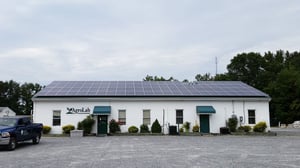 Solar Renewable Energy Credits (SRECs)
Solar Renewable Energy Credits (SRECs)
Delaware does have an SREC auction that happens most years. When it doesn’t, SRECs are sold in the Pennsylvania secondary market.
Incentives from Individual Utility Companies
While the State of Delaware isn’t currently offering any grants or incentives, several Delaware utility companies are. If you get your electricity from Delmarva Power, Delaware Electric Cooperative, or Delaware Municipal Electrical Corporation (DEMEC), you may be eligible for additional funds to install your system.
Delmarva Power customers may qualify for their Green Energy Grant, which offers $600/kW with a maximum of $5,000. The Delaware Municipal Electric Corporation offers grants of $1,000/kW up to $3,500 for qualifying systems.
The Delaware Electric Cooperative offers qualifying systems $.50/watt of solar installed for the first 5 kW, and $0.20/watt over 5 kW and is capped at $2,500. Nonprofits can receive a little more, with $1.05/watt for the first 5 kW and $0.52/watt after 5kW with a cap at $3,500. This program has a specific budget and rates may change depending on how many systems are installed.
Maryland’s Exciting Solar Panel Incentives
Net Metering
Maryland requires their utility companies to compensate solar-generating homes, businesses, and farms with the retail rate for electricity. That means any extra energy you transfer to the electricity grid can be pulled off at no additional cost, thanks to net metering.
 Solar Renewable Energy Credits (SRECs)
Solar Renewable Energy Credits (SRECs)
Maryland joins many of the other Mid-Atlantic states that have set significant renewable energy goals for the 2020s with their CARES Act. By 2030, they’re requiring all of their utility companies to generate 25% of electricity from renewable sources. This could be great news for the state’s SREC market, as rates are likely to increase as renewable energy becomes more sought after.
Maryland’s Clean Energy Grants
The Maryland Energy Administration offers a rebate of up to $30,000 for qualifying rooftop commercial solar systems, up to $20,000 for non-rooftop commercial systems, and up to $1,000 for qualifying residential systems through the Clean Energy Grant program.
Tax Exemptions
Maryland makes it a little easier to go solar with a few tax exemptions for solar owners. Because installing a solar system on your property will increase its value, it also would increase how much you owe in property taxes. However, Maryland waives any property tax increase due to solar. In addition, you won’t have to pay sales tax on the installation and solar components.
Solar Panel Incentives Available in New Jersey
Net Metering
New Jersey requires net metering and compensates excess solar-generated electricity from homes, businesses, and farms at the retail rate. This means you can offset high energy prices with solar energy at a kWh-per-kWh rate.
Solar Renewable Energy Credits (SRECs)
The State of New Jersey has set the goal for their utility companies that 50% of the electricity will be generated by renewable sources by 2030. Additionally, New Jersey has an SREC market. The 2030 goal could mean SRECs will become more valuable.
Tax Exemptions
New Jersey offers a few favorable tax exemptions to those who are installing or owning a solar system. First off, you won’t have to pay the state-wide 6.625% sales tax when you’re installing your system.
Installing a solar system can significantly increase the value of your property. In some states, you’d be on the hook for that added value when it comes time to pay your property tax. However, New Jersey waives the taxes for any increase in value due to the solar system.
Solar Panel Incentives In New York
NY Value Stack: Net Metering Alternative
While many states use net metering as a way to compensate solar producers, New York transitioned to what they call the VDER Value Stack. This program aims to more fairly compensate solar producers for their energy because electricity generated by solar has a different value than electricity generated by traditional, non-renewable means.
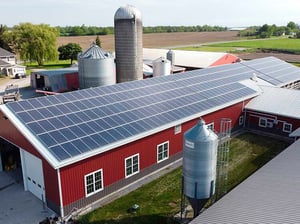
VDER Value Stack takes into account the following: energy value, capacity value, environmental value, demand reduction value (DRV), and locational system relief value (LSRV). Depending on how these values play out for your specific situation, you may end up earning more or less per kWh than you would with retail rate net metering.
We’re not able to fully do this topic justice here, but you can learn more about the VDER Value Stack in this blog.
Tax Credits and Grants
New York doesn’t have an SREC market. However, it does offer grants and other incentives that certainly make up for it.
The NY State Solar Energy System Equipment Tax Credit is available to homeowners installing solar and offers a 25% tax credit and maxes out at $5,000.
The NY-Sun Megawatt (MW) Block Program, often referred to as the NYSERDA grant, offers an incentive that can be 5 – 10% of the total system cost. The NYSERDA Grant is available for businesses and homes alike. This grant will vary based on how much solar energy is already installed in your area.
If you’re a National Grid customer and you’re installing solar on a property that produces food (such as a farm, vineyard, or orchard), you can qualify for additional grants. The more you invest in your system, the more you’ll save:
- $25K Investment – $5K Grant
- $25 – $100K Investment – $10K Grant
- $100 – $500K Investment – $25K Grant
- Over $500K Investment – $50K Grant
Tax Exemptions
New York waives its state-wide tax rate on solar installation services and equipment. However, municipalities within the state are permitted to forgo this exemption, so it doesn’t apply everywhere in New York.
Additionally, the state waives property taxes on the value your solar system added to your property. However, like the sales tax exemption, this may not be enacted within your specific municipality.
Solar Panel Incentives Offered in Ohio
Net Metering
In Ohio, net metering is available for qualifying solar systems through the state’s public utilities. However, it’s important to note that most of the state’s electric cooperatives do not offer net metering. Instead, these co-ops typically utilize a net billing system to compensate their customers for any excess energy produced by their solar systems.
Net metering provides solar owners with compensation at the retail rate for any excess energy they produce. On the other hand, net billing offers solar owners compensation at a lower supply or wholesale rate.
 Solar Renewable Energy Credits (SRECs)
Solar Renewable Energy Credits (SRECs)
Ohio does have an SREC market, meaning you can sell the credit you earn for each megawatt-hour your solar system produces.
By 2026, Ohio will require 8.5% of electricity sold by their utility companies to be generated from renewable energy sources. Solar owners can contribute to this goal by selling SRECs on the Ohio market.
Interest Rate Reduction on Loans
Ohio’s ECO-Link is a program that aims to lower the interest rate on loans taken out by homeowners for property improvement projects, which includes solar. If you take a loan out from an eligible bank, you’ll be able to lower the interest rate on your solar loan (of up to $50,000) by 3% for seven years.
Tax Exemptions
Installing a solar system on your property increases its value. An increase in property value means an increase in property taxes. However, solar systems installed on commercial properties won’t be subject to an increase due to the added value of solar energy. Homeowners in Cleveland and Cincinnati will benefit from this same exemption, though homeowners in other parts of the state will have to pay.
In addition to this, both homes and businesses are exempt from any state sales tax on the installation and equipment required to go solar.
Solar Panel Incentives Available in Pennsylvania
Net Metering
Pennsylvania requires its utilities to credit solar producers at the retail rate for excess electricity transferred to the grid. This means you’ll get that one-for-one exchange for kilowatt-hours, making it easier to offset 100% of your electricity usage with solar energy.
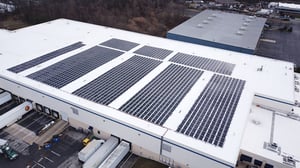 Solar Renewable Energy Credits (SRECs)
Solar Renewable Energy Credits (SRECs)
Pennsylvania has an SREC market, allowing solar owners to sell their megawatt-hour credits on the market to utility companies looking to meet their state-mandated renewable energy portfolio standards.
Virginia’s Solar Panel Incentives
Net Metering
Virginia abides by net metering rules, meaning you’ll receive one credit for each kWh your solar system transfers to the utility grid. That credit can be traded for a kWh from the grid whenever you need it in a one-for-one exchange. This helps speed up the payback of your system.
Tax Exemption
If you’re installing a solar system, you’ll be pleased to hear that it will increase the value of your property. However, with an increase in the value of your property comes an increase in your property taxes. This won’t be the case for some residential systems in Virginia. Homeowners who install solar won’t have to pay taxes on the value solar has added to their home. However, not all localities in Virginia abide by this, so this exemption will vary depending on where you live.
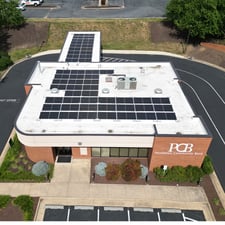 Solar Renewable Energy Credits (SRECs)
Solar Renewable Energy Credits (SRECs)
Virginia now offers SRECs as a result of the implementation of the Virginia Clean Economy Act. This exciting development provides an opportunity for solar owners in Virginia to participate in the growing renewable energy market and contribute to the state’s clean energy goals.
Solar Panel Incentives Available in West Virginia
Net Metering
All utility companies in West Virginia are required to offer net metering for solar producers. This means you get a credit for each kilowatt-hour you produce that’s worth just how much it would cost you to purchase a kilowatt-hour from the utility. This allows many West Virginians to produce enough electricity with a solar system to offset 100% of their electricity needs, as they can draw on these credits whenever they’re needed.
Getting the Best Deal on a Solar Panel System
Incentives like net metering, SRECs, tax credits, grants, and tax exemptions all make this investment a little bit easier to make. Some states have a plethora of incentives to entice new solar owners, and some states do not. Regardless, solar can be an extremely profitable investment for your home, business, or farm.
If you’re interested in exploring the potential of solar investment for your property, request a complimentary custom quote using the button below. Our team will provide you with a comprehensive breakdown of what a solar system could mean for you, tailored specifically to your needs and goals.
If you’re not ready for a quote, use our solar savings calculator to get an estimated price and saving breakdown based on your average monthly electric bill and location.
For more information on incentives for your state, visit DSIRE.com.
